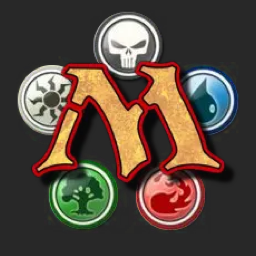

Generative AI is just machine learning, the same as the magic tool. The difference is in application with one being used for prediction and the other for generation. The two are more alike than they are dissimilar.


Generative AI is just machine learning, the same as the magic tool. The difference is in application with one being used for prediction and the other for generation. The two are more alike than they are dissimilar.
I wonder if the artist will get fired for using the magic select tool in Photoshop. That uses AI / machine learning too. It’s literally just using AI to highlight AI generated items.


Every day is a pirate party in the US.


Can I roll a performance check as my bard to helicopter?


Yeah, I remember the days of renting VCR players and acting like we didn’t already own one so we could play on one and record off the other. I think a lot of this is due to the rise in Internet infrastructure. 15 years ago streaming services wouldn’t have been doable. There was no licensing, just files to download. You’d even get Digital Download codes in your DVD case when buying a movie, so you had multiple copies. Really sad how things are consolidating.


Should be doable to sell your bath water to a bunch of goblins, too.
I’ve seen individuals who will put a USB drive in a safety deposit box. The drive contains documentation on how to access certain things and then a master key for a password manager. When they pass whoever manages the estate has access to the safety deposit box.
Depending on how technical you are, you could always write a dead man switch. Basically the same concept, you would provide documentation and master key access via email. It would then trigger on condition that some account is not logged into or deactivated after a set period of time. The issue there is that you would have to consistently deactivate within that time frame or the deadman switch is triggered.


I’m guessing you are extremely young as that is not how digital purchases have historically worked. The concept of “you bought a license to use it” hasn’t been around long. Before that, you would be given an access code to go to a publisher’s website like Disney and download a copy of the content you purchased. It wasn’t tied to any licensing server or authentication system past that point, you just had a digital copy of your purchase.


This is exactly what happened actually in one of Valve’s court cases. It wasn’t that Steam went down, but rather the user was permabanned. When that ban happened he lost access to his game library. However, he had purchased those games so he argued successfully that he had a right to download what he purchased. Valve attempted to argue that they were a subscription service so that they would not have to provide anything to him. In the end since he won the case, he was allowed to download what he purchased. I’m sure that created a weird situation for those publishers and I’m not sure whether or not Steam had to remove the Steam DRM prior to allowing him to download.


That’s not really true. I still have physical media that I’ve purchased as a teenager. That’s not a license key that I own that’s physical media. It was independent of any licensing servers or anything like that. Digital media licensing didn’t really start taking effect until about 2010ish en masse. Prior to that most streaming services like Netflix weren’t really streaming services as internet infrastructure didn’t quite exist to that degree yet.


Valve argued in court that you do not own any title in your library and that they are a subscription based service. That’s not very ethical.
Bare in mind what OP posted was from 4 months ago, but one of the mods mentions it here: https://www.reddit.com/r/PiratedGames/comments/14qvyi3/some_controversy_going_on_at_this_sub/
They acknowledge changes were made, so I would take that as confirmation, but that whole group/sub kind of cringey. Posts do get deleted by mods but users also make a lot of claims without any evidence. I get that most of those people don’t have a technical background so its hard to find evidence, but that also maybe is a good reason to make a claim.
EDIT: When I wrote my original comment, I used “Apparently” and “Allegedly” synonymously. I understand if anyone wants to call me out on that, but doesn’t seem right changing what I wrote (seems like that would be covering).
Apparently some mods were running keyloggers on the community.


I think the OP’s question is better worded on the second point as “What is preventing a copyright holder from joining a private tracker?” The answer to that is nothing. In theory, invites would only be handed out to trusted individuals, but the reality is you can just ask for invites and people will give you them.
You might check out blocky or coredns. Both of those allow for DoT and domain blacklisting (blocky can do blacklisting via regex as well).
If you are wanting even more control, you might check out pfSense/Opensense and the SSL inspection and squidproxy options those have.


Your server block has to have both ssl_certificate and ssl_certificate_keys paths set. I between you also have to specify interface not just port, but I might be wrong about that. It would be like “listen *:443 ssl http2”.


To be fair, pirating a service you would otherwise not pay for (regardless of source) doesn’t effect their revenue stream and therefore would be considered ethical piracy. Pirating content from pirates is perfectly fine.


Black Friday ads on a piracy board. There is no God.
I’ve been able to connect over Tailscale from my phone to remote Jellyfin server. From there I cast from the phone to Roku device. That seems to work, but latency is going to be crazy high after all the additional hops the traffic has to make.
I think Type O Negative better fits with Shadowheart: “Everyone I Love Is Dead”